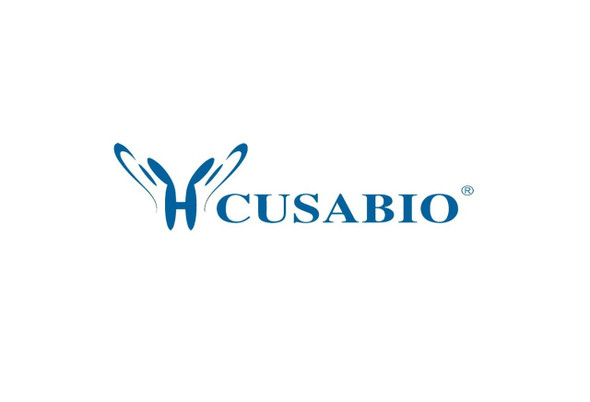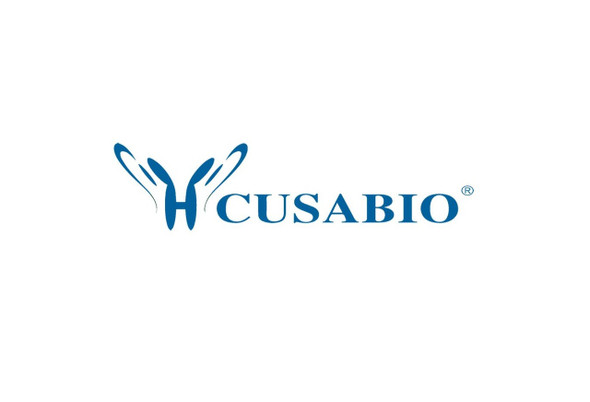Cusabio Human Recombinants
Recombinant Human Hyaluronidase PH-20 (SPAM1) | CSB-EP022471HUa0
- SKU:
- CSB-EP022471HUa0
- Availability:
- 3 - 7 Working Days
Description
Recombinant Human Hyaluronidase PH-20 (SPAM1) | CSB-EP022471HUa0 | Cusabio
Alternative Name(s): Hyaluronoglucosaminidase PH-20Sperm adhesion molecule 1Sperm surface protein PH-20
Gene Names: SPAM1
Research Areas: Cancer
Organism: Homo sapiens (Human)
AA Sequence: LNFRAPPVIPNVPFLWAWNAPSEFCLGKFDEPLDMSLFSFIGSPRINATGQGVTIFYVDRLGYYPYIDSITGVTVNGGIPQKISLQDHLDKAKKDITFYMPVDNLGMAVIDWEEWRPTWARNWKPKDVYKNRSIELVQQQNVQLSLTEATEKAKQEFEKAGKDFLVETIKLGKLLRPNHLWGYYLFPDCYNHHYKKPGYNGSCFNVEIKRNDDLSWLWNESTALYPSIYLNTQQSPVAATLYVRNRVREAIRVSKIPDAKSPLPVFAYTRIVFTDQVLKFLSQDELVYTFGETVALGASGIVIWGTLSIMRSMKSCLLLDNYMETILNPYIINVTLAAKMCSQVLCQEQGVCIRKNWNSSDYLHLNPDNFAIQLEKGGKFTVRGKPTLEDLEQFSEKFYCSCYSTLSCKEKADVKDTDAVDVCIADGVCIDAFLKPPMETEEPQIFYNASPSTLS
Source: E.coli
Tag Info: N-terminal 6xHis-tagged
Expression Region: 36-490aa
Sequence Info: Full Length of Mature Protein
MW: 55.9 kDa
Purity: Greater than 85% as determined by SDS-PAGE.
Relevance: Involved in sperm-egg adhesion. Upon fertilization sperm must first penetrate a layer of cumulus cells that surrounds the egg before reaching the zona pellucida. The cumulus cells are bedded in a matrix containing hyaluronic acid which is formed prior to ovulation. This protein aids in penetrating the layer of cumulus cells by digesting hyaluronic acid.
Reference: Exome sequencing identifies frequent mutation of the SWI/SNF complex gene PBRM1 in renal carcinoma.Varela I., Tarpey P., Raine K., Huang D., Ong C.K., Stephens P., Davies H., Jones D., Lin M.L., Teague J., Bignell G., Butler A., Cho J., Dalgliesh G.L., Galappaththige D., Greenman C., Hardy C., Jia M. , Latimer C., Lau K.W., Marshall J., McLaren S., Menzies A., Mudie L., Stebbings L., Largaespada D.A., Wessels L.F.A., Richard S., Kahnoski R.J., Anema J., Tuveson D.A., Perez-Mancera P.A., Mustonen V., Fischer A., Adams D.J., Rust A., Chan-On W., Subimerb C., Dykema K., Furge K., Campbell P.J., Teh B.T., Stratton M.R., Futreal P.A.Nature 469:539-542(2011)
Storage: The shelf life is related to many factors, storage state, buffer ingredients, storage temperature and the stability of the protein itself. Generally, the shelf life of liquid form is 6 months at -20?/-80?. The shelf life of lyophilized form is 12 months at -20?/-80?.
Notes: Repeated freezing and thawing is not recommended. Store working aliquots at 4? for up to one week.
Function:
Involvement in disease:
Subcellular Location:
Protein Families:
Tissue Specificity:
Paythway:
Form: Liquid or Lyophilized powder
Buffer: If the delivery form is liquid, the default storage buffer is Tris/PBS-based buffer, 5%-50% glycerol. If the delivery form is lyophilized powder, the buffer before lyophilization is Tris/PBS-based buffer, 6% Trehalose, pH 8.0.
Reconstitution: We recommend that this vial be briefly centrifuged prior to opening to bring the contents to the bottom. Please reconstitute protein in deionized sterile water to a concentration of 0.1-1.0 mg/mL.We recommend to add 5-50% of glycerol (final concentration) and aliquot for long-term storage at -20?/-80?. Our default final concentration of glycerol is 50%. Customers could use it as reference.
Uniprot ID: P38567
HGNC Database Link: N/A
UniGene Database Link: N/A
KEGG Database Link: N/A
STRING Database Link: N/A
OMIM Database Link: N/A









